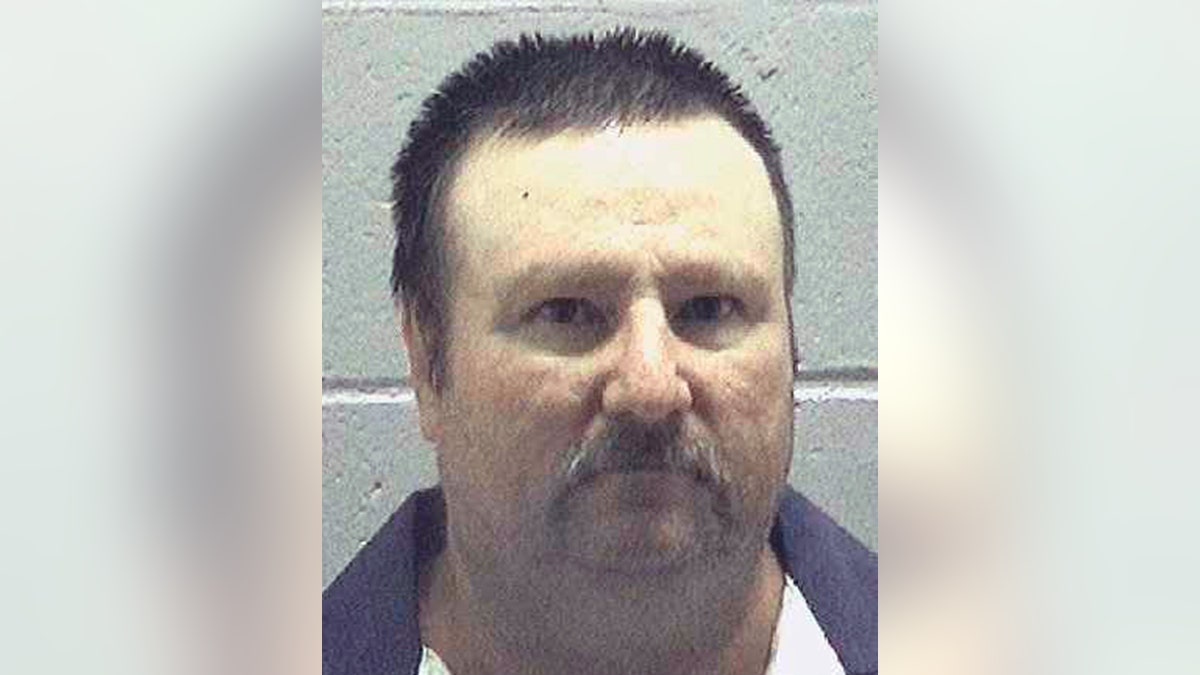Georgia's parole board on Thursday spared the life of a man who was scheduled to be executed just hours later, commuting his sentence to life without the possibility of parole.
Jimmy Fletcher Meders, 58, had been scheduled to receive a lethal injection at 7 p.m. Thursday at the state prison in Jackson. But the State Board of Pardons and Paroles released its decision granting him clemency around 1 p.m.
The board held a closed-door clemency hearing for Meders on Wednesday.

This undated photo made available by the Georgia Department of Corrections shows Jimmy Fletcher Meders. On Monday, Dec. 30, 2019, authorities said Meders, convicted of killing a convenience store clerk more than 30 years ago, is is scheduled to be put to death on Jan. 16, 2020. (Georgia Department of Corrections via AP)
Meders is only the sixth Georgia death row inmate to have a sentence commuted by the parole board since 2002. The last to have a sentence commuted was Tommy Lee Waldrip, who was spared execution on July 9, 2014.
Meders was convicted of murder and sentenced to die for the October 1987 killing of convenience store clerk Don Anderson in coastal Glynn County.
TEXAS MAN EXECUTED FOR MURDERING WIFE IN 2005; LAST WORDS WERE APOLOGY TO FAMILY
Meders spent the afternoon of Oct. 13, 1987, drinking alcohol with three men: Randy Harris, Bill Arnold and Greg Creel. After leaving Harris and driving around for hours, Meders, Creel and Arnold ended up at a convenience store about 2:30 a.m. the next morning.
While they were there, Anderson was fatally shot in the chest and head, and more than $30 was taken from the cash register, according to authorities.
FEDERAL GOVERNMENT TO RESUME CAPITAL PUNISHMENT
Meders testified at his trial that all three men went inside, and Arnold shot Anderson and told Meders to grab the cash. Arnold and Creel both testified that only Creel and Meders entered the store, and Meders shot the clerk and took the money.
Harris, who wasn't at the store, testified that Meders confessed to him afterward that he had "blowed a man's head off over $38."
Meders was the only one charged in the robbery and killing.
Meders was sentenced to death in 1989, four years before a change in the law that allowed a sentence of life without the possibility of parole for capital cases. In the clemency application submitted to the parole board, his lawyers argued that it was clear that the jury wanted that option.
The application cited a note the jurors sent to the judge after 20 minutes of deliberations: "If the Jury recommends that the accused be sentence to life imprisonment, can the Jury recommend that the sentence be carried out without Parole??"
Meders' lawyers also gathered sworn statements from the six jurors who are still alive and able to remember the deliberations. They all said they would have chosen life without parole if it had been an option and supported clemency for Meders.






















